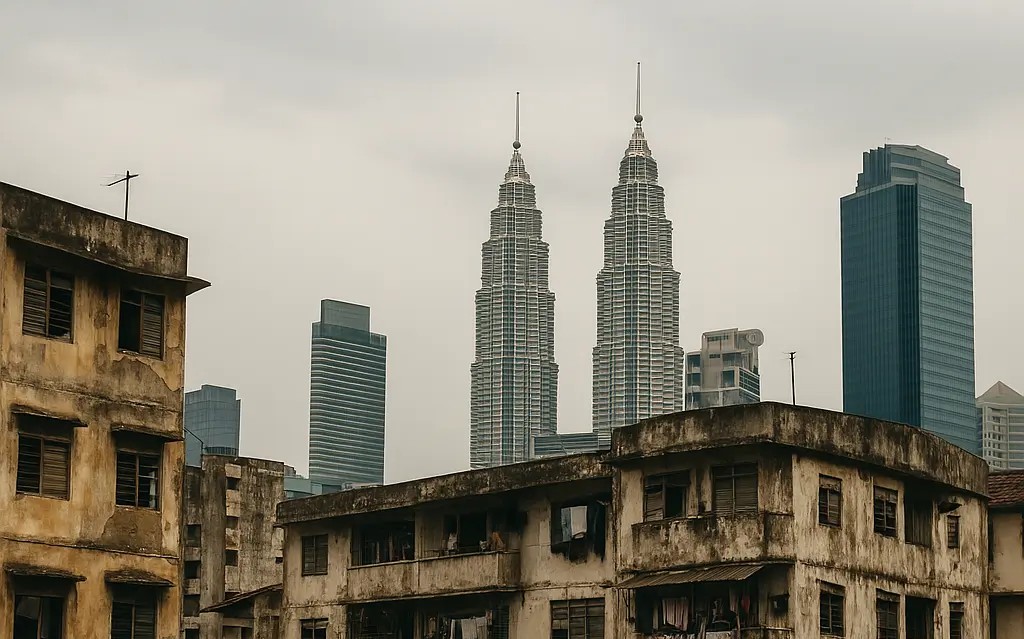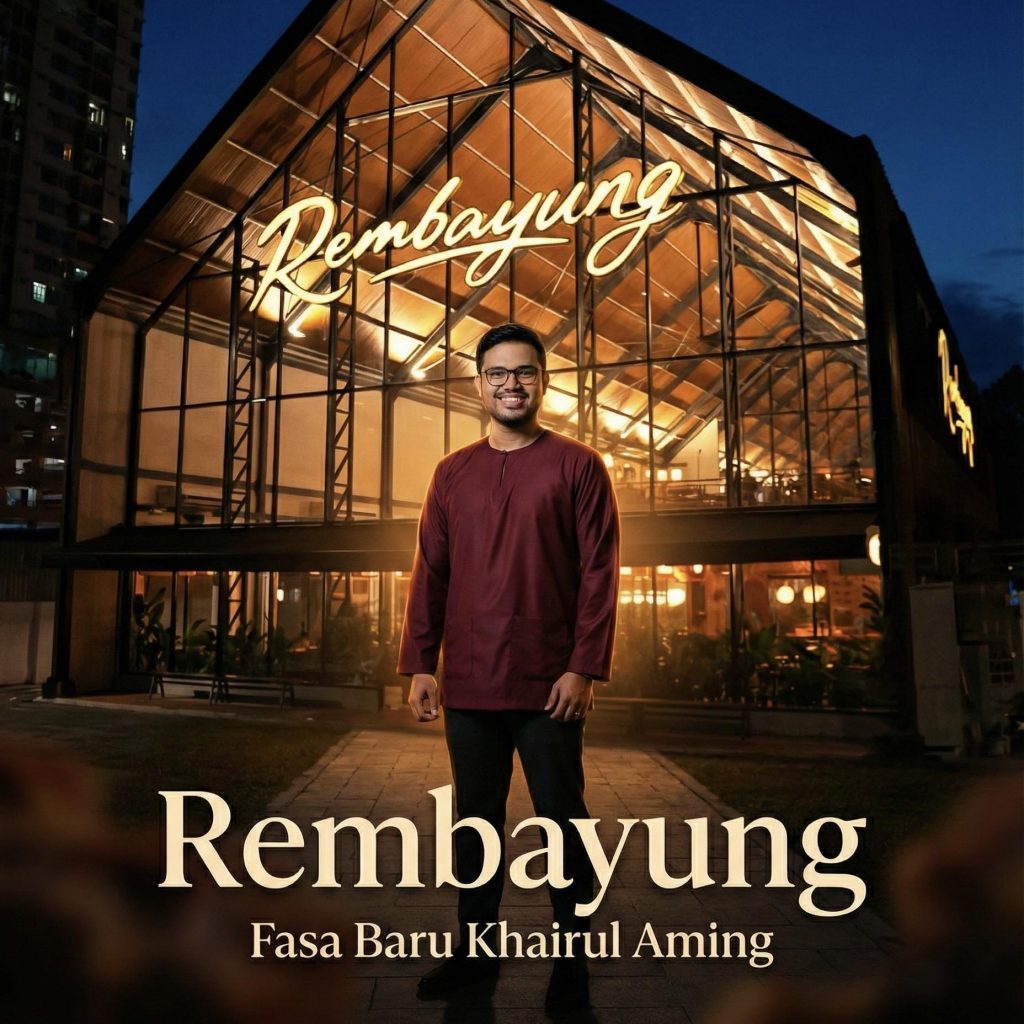Malaysian netizens’ reactions to the Urban Renewal Bill (PSB) by the Malaysian government.
In August 2025, Housing and Local Government Minister Nga Kor Ming announced the Urban Renewal Bill (PSB), a key initiative under the 13th Malaysia Plan set to revitalise ageing urban areas from 2026 to 2030. Positioned as a transformative framework to address deteriorating infrastructure and promote sustainable development, the Urban Renewal Bill (PSB) promises earthquake-resistant housing, better community facilities, and solutions for abandoned projects. However, what started as a step towards urban progress has turned into a polarised debate, with netizens scrutinising whether its vision aligns with the realities of homeowner rights and property protections in Malaysia.
The Urban Renewal Bill (PSB) has generated substantial public interest, with discussions capturing 18,768 mentions and over 229,182 engagements across social media platforms since its announcement on 19 August 2025. The bill focuses on redeveloping structures over 30 years old with mechanisms for consent and compensation, yet it has evolved into a heated conversation, blending optimism about modernisation with fears of forced evictions and developer overreach.
The Malaysia Urban Renewal Bill is closely tied to national development planning, and its impact can be better understood when viewed alongside our analysis of RMK13 Vision vs Reality. Visit our news page for more updates and in-depth coverage on Malaysia’s key reforms.
 Timeline of Public Reactions
Timeline of Public Reactions
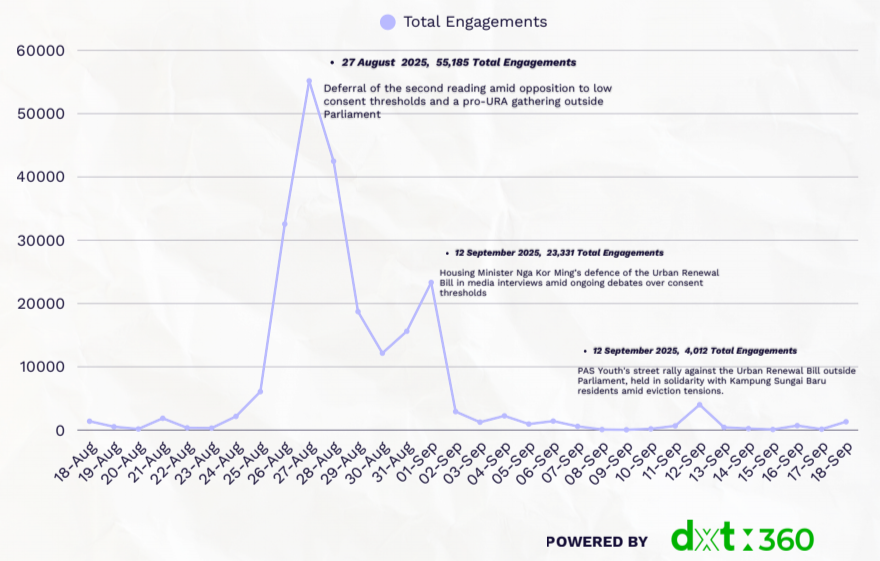
The public’s response to the Urban Renewal Bill (PSB) has shifted since its launch, with engagement peaking at critical junctures:
26–27 August 2025:
Discussions exploded, hitting 55,185 engagements on 27 August, fuelled by the deferral of the second reading amid opposition to low consent thresholds and a pro-URA gathering outside Parliament.
1 September 2025:
Engagement rose to 23,331, driven by Minister Nga Kor Ming’s defence in media interviews amid ongoing debates over consent thresholds.
12 September 2025:
A surge to 4,012 engagements occurred due to PAS Youth’s street rally against the bill outside Parliament, held in solidarity with Kampung Sungai Baru residents amid eviction tensions.
13–18 September 2025:
Engagement tapered off, with figures like 437 on 13 September and 1,322 on 18 September, reflecting a shift from frenzy to sustained scrutiny.
 Where Did the Conversation Happen?
Where Did the Conversation Happen?
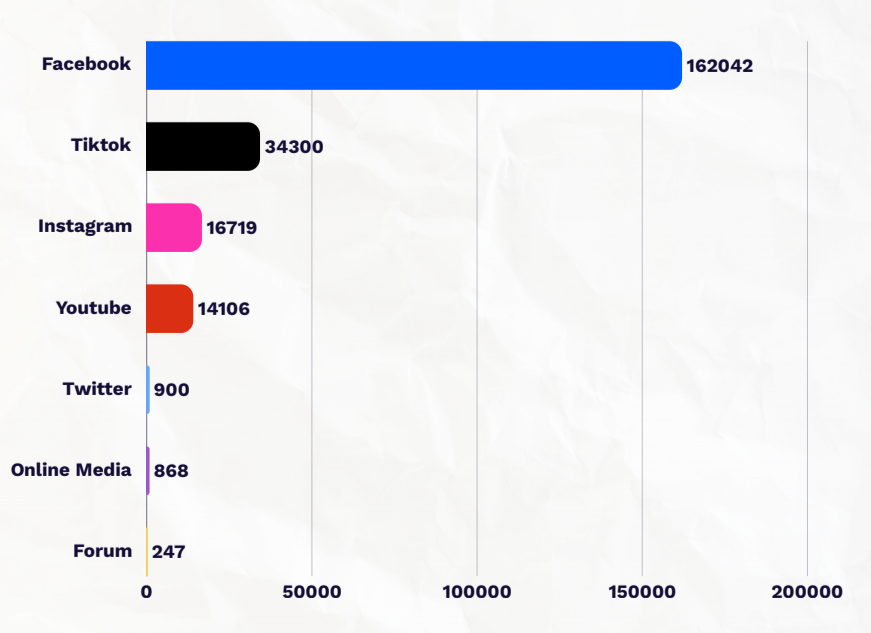
The conversation has surged across Facebook (162,042 engagements), TikTok (34,300), Instagram (16,719), YouTube (14,106), Twitter (900), online media (868), and forums (247), illustrating a dynamic array of responses. Facebook dominated with in-depth community debates, TikTok with viral clips highlighting flaws, and Instagram with visual protests against the bill.
 Key Themes That Drove the Conversation
Key Themes That Drove the Conversation
Property Rights & Compensation Fears (38%)
Dominating discussions were anxieties that the bill could undermine home ownership or “take houses by stealth.” Netizens demanded clear guarantees on compensation, temporary accommodation, and developer accountability if projects failed. Many stressed that renewal efforts must not jeopardise residents’ savings or leave them without secure housing.
Distrust In Political & Developer Interests (27%)
A significant portion of discourse centred on suspicions of political agendas and collusion with developers. Critics viewed the URA/PSB as a revenue tool or part of a “DAP–developer” pact, while others accused opposition figures of fuelling fear for political mileage. Long-standing unease about corruption and back-room deals coloured this theme.
Bumiputera Land Rights & Kampung Baru Concerns (18%)
Comments frequently referenced Bumiputera reserve land and iconic sites such as Kampung Baru, warning that redevelopment could erode Malay ownership or cultural heritage. Some linked the URA/PSB to historical disputes over compensation in Kampung Baru, urging the government to avoid repeating mistakes where residents felt pressured to sell at undervalued rates. This theme underscored the need to balance modernisation with community roots.
Socio-Economic & Community Impact (12%)
Netizens debated whether the bill would truly uplift low-income groups or instead push them out of revitalised areas. Concerns included rent inflation, the loss of tight-knit neighbourhoods, and challenges for older residents facing new mortgages. Supporters argued that the Act could breathe life into neglected flats, with better lifts, safety, and sanitation.
Legislative Clarity & Political Polarisation (5%)
Commentators called for stronger clauses on project delivery, relocation terms, and penalties for abandonment, while some discussions veered into partisan or racial rhetoric, portraying the bill as a “DAP agenda” or casting its opponents as wealthy landlords. This highlighted how urban policy debates can be overshadowed by political and identity struggles.
 Word Cloud Analysis
Word Cloud Analysis
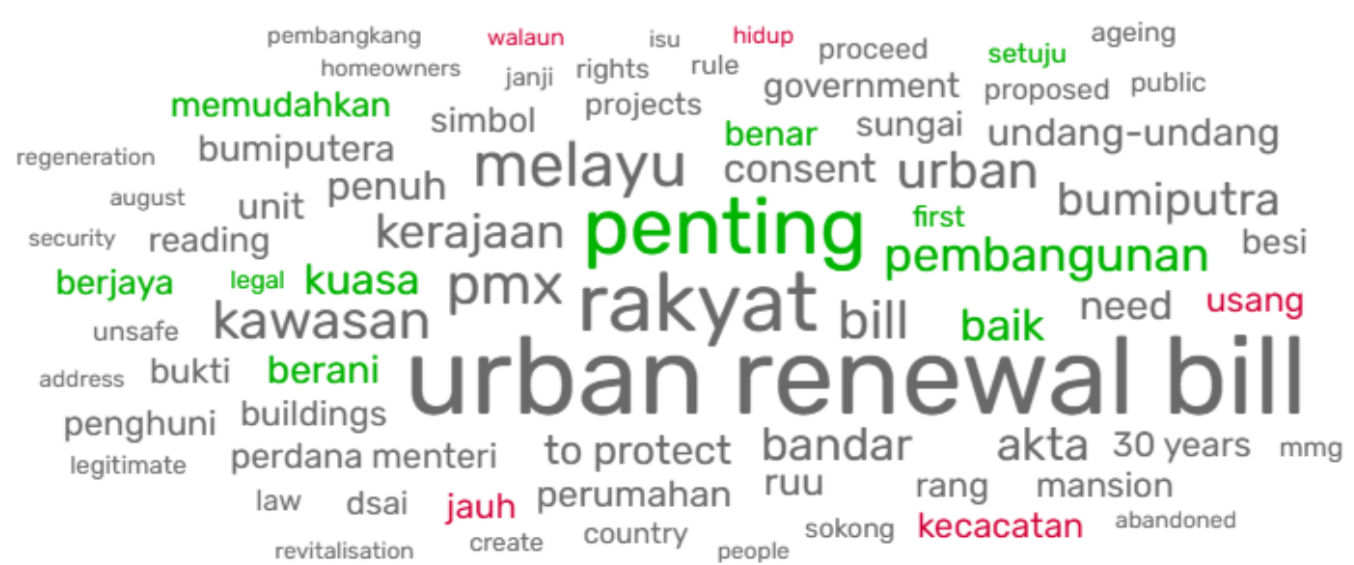
Backing Urban Revitalisation and Safety
Words like sokong (support), revitalisation, ageing, need, and usang (unsafe) reflected optimism that the Urban Renewal Bill (PSB) could set Malaysia on a more sustainable path. Netizens expressed support (sokong) for policies that promised revitalisation while securing safer structures for the rakyat, with usang symbolising the urgent need to address dilapidated buildings.
Homeowner Rights and Consent Rows
The presence of homeowners, consent, protect, rule, and undang-undang (law) pointed to debates over property rights. Netizens raised concerns about low consent thresholds, calling for legal protections to safeguard homeowners, with protect and rule underscoring demands for fair governance amidst fears of forced evictions.
Nerves About Government Power and Mismanagement
Keywords such as kerajaan (government), kuasa (power), pemerintah (ruler), and kelemahan (weakness) highlighted anxieties about overreach. Netizens questioned the government’s authority in redevelopment plans, linking kuasa to potential abuses and kelemahan in implementation, reflecting distrust in official assurances.
Racial and Community Tensions
Terms like bumiputera, Melayu (Malay), rakyat (people), and bandar (urban) revealed cultural tensions. Netizens worried about the impact on Malay communities, with bumiputera and Melayu symbolising identity concerns, whilst rakyat emphasised the need to prioritise people over urban profit, intensifying communal debates.
 Social Sentiment Breakdown
Social Sentiment Breakdown
Negative (80%): Frustration and opposition to perceived government overreach.
Neutral (5%): Informational posts, policy clarifications, and updates.
Positive (15%): Approval of modernisation efforts and constructive suggestions for improvements.
 What Netizens Were Saying
What Netizens Were Saying
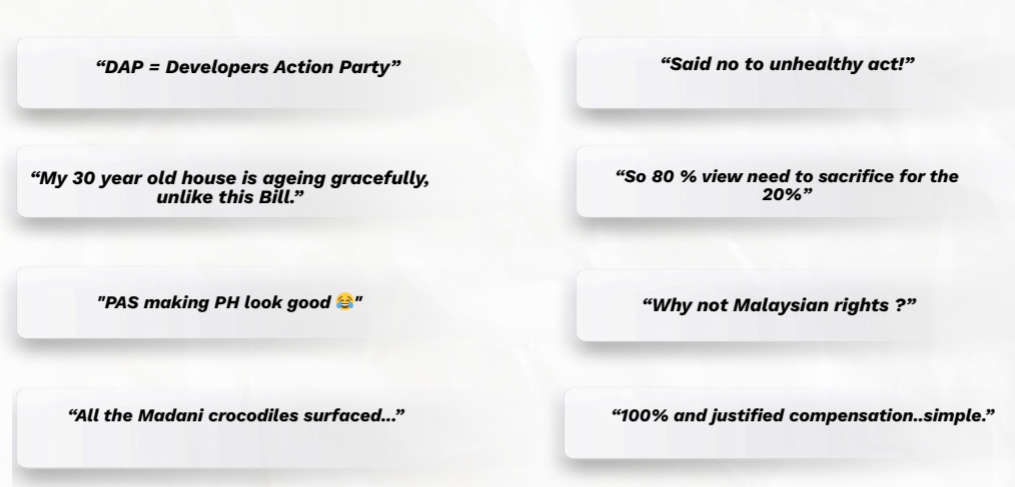
 Final Takeaways
Final Takeaways
 Trust begins with clarity:
Trust begins with clarity:
Malaysians want to feel secure in their homes. Urban renewal policy should empower, not displace.
 Renewal isn’t one-size-fits-all:
Renewal isn’t one-size-fits-all:
Malaysians have diverse needs from B40 communities to Bumiputera landowners. Flexibility in consent and protections is essential, not optional.
 Transparency is key:
Transparency is key:
In the digital age, policy must not only be sound it must be clearly communicated and open to dialogue.





